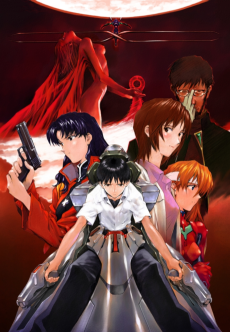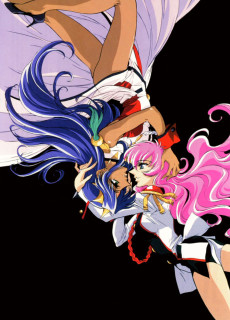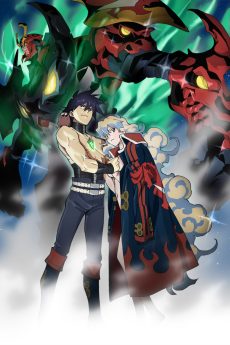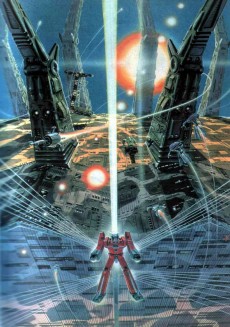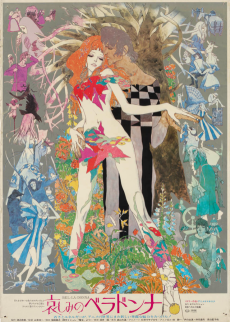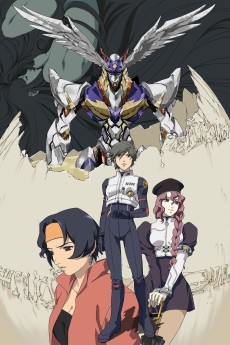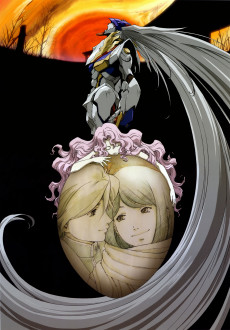SHIN SEIKI EVANGELION MOVIE: AIR / MAGOKORO WO, KIMI NI
MOVIE
Dubbed
SOURCE
ORIGINAL
RELEASE
July 19, 1997
LENGTH
87 min
DESCRIPTION
NERV faces a brutal attack from SEELE, but with Asuka in a coma, and Shinji in a nervous breakdown, things soon turn into the surreal. This movie provides a concurrent ending to the final two episodes of the show Neon Genesis Evangelion.
(Source: IMDb)
CAST

Asuka Langley Souryuu
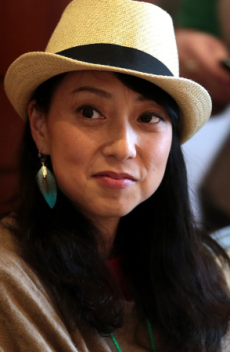
Yuuko Miyamura
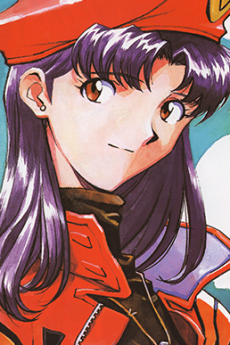
Misato Katsuragi
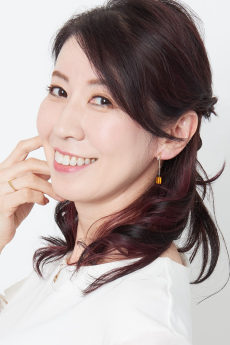
Kotono Mitsuishi
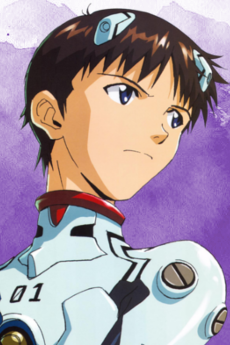
Shinji Ikari
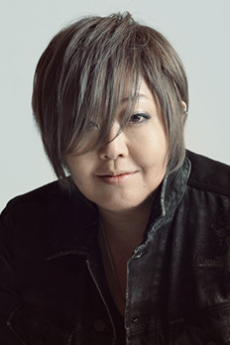
Megumi Ogata
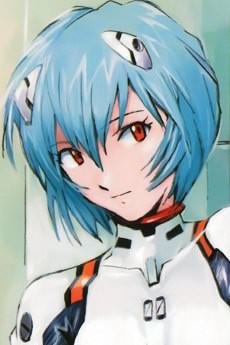
Rei Ayanami
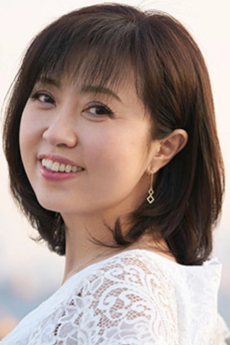
Megumi Hayashibara
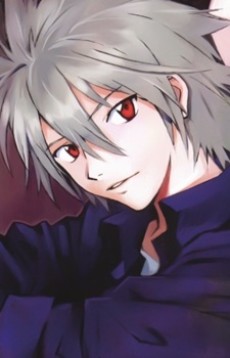
Kaworu Nagisa
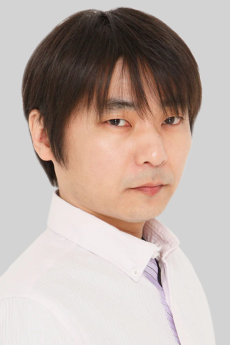
Akira Ishida
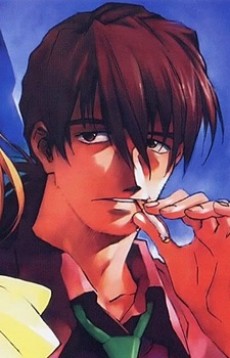
Ryouji Kaji
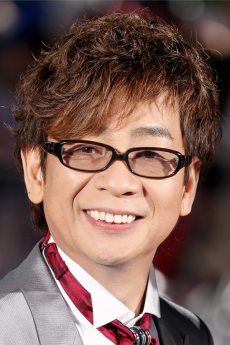
Kouichi Yamadera
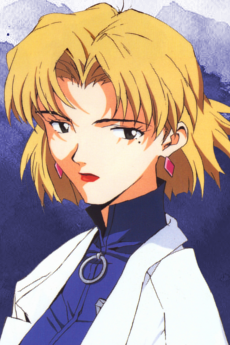
Ritsuko Akagi
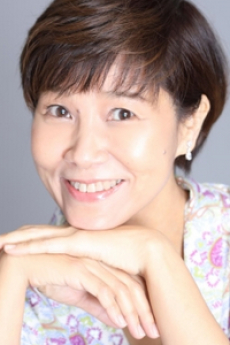
Yuriko Yamaguchi

Gendou Ikari
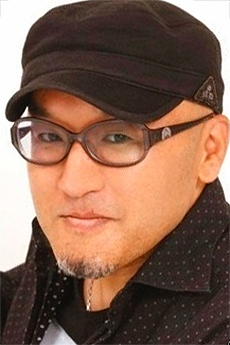
Fumihiko Tachiki
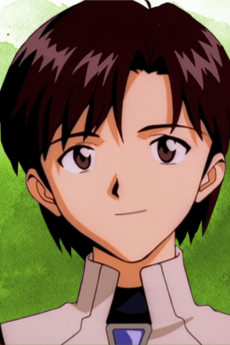
Maya Ibuki
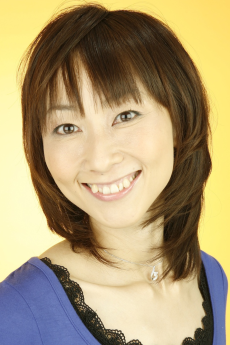
Miki Nagasawa
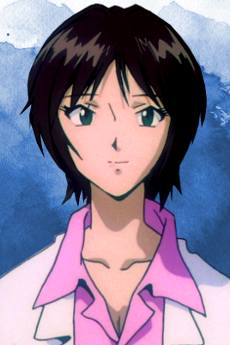
Yui Ikari

Megumi Hayashibara
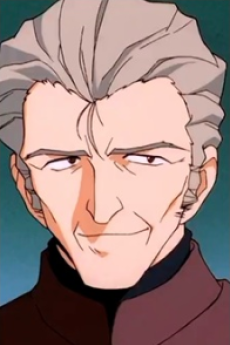
Kohzou Fuyutsuki
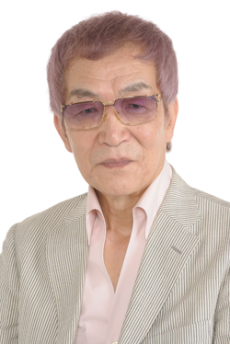
Motomu Kiyokawa
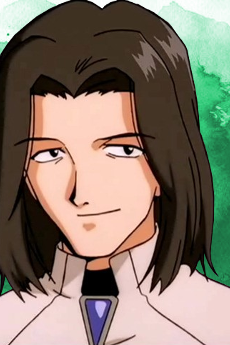
Shigeru Aoba
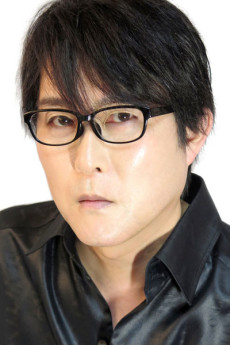
Takehito Koyasu
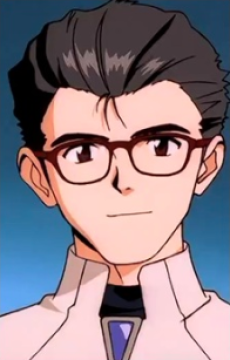
Makoto Hyuuga
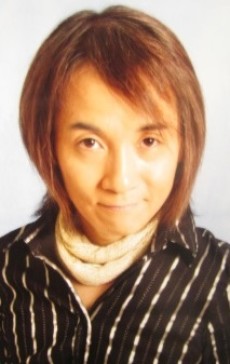
Hiro Yuuki
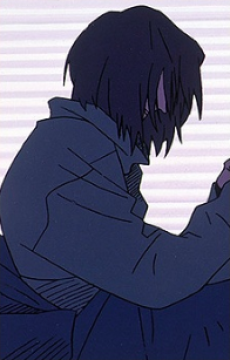
Kyouko Zeppelin Souryuu
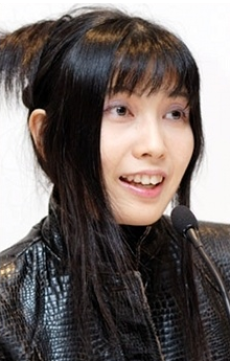
Maria Kawamura
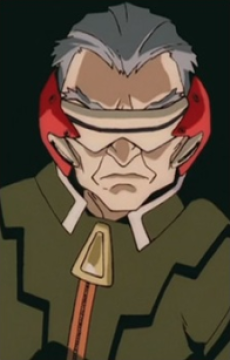
Keel Lorentz

Mugihito
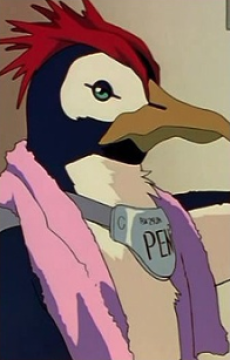
Pen Pen
RELATED TO SHIN SEIKI EVANGELION MOVIE: AIR / MAGOKORO WO, KIMI NI
REVIEWS

CodeBlazeFate
95/100This is the culmination of everything Evangelion is and was, perhaps even more so than the finale of the original.Continue on AniListPart 2: A Violent Roar
So this is what happens when you refuse Eva’s embrace.
If Neon Genesis Evangelion was the stern yet loving embrace with the ultimate message of accepting understanding yourself in order to begin accepting understanding others, then The End of Evangelion is the much wilder, more apocalyptic, but equally passionate gripping and shaking of your shoulders that desperately roars to you of the dangers of running away from reality and that regardless of how painful we can be, we must face it in order for good things to even have a chance at happening.
Where NGE settled on a satisfying realization for Shinji despite the current and borderline unambiguously devastating outside circumstances we are made aware of via a line of text that lasts for but a brief moment, this one takes a more apocalyptic approach, effectively resetting things in the end with hope for the future where everything is restored. It is a violent rampage that lays waste to nearly everyone, and an exaggerated showcase of the type of results inflicted on other people when you decide to run away from reality and close yourself off out of fear and spite.
The violence is a wondrous spectacle to behold thanks to the teams at Production IG and Gainax. The final battle Asuka has is phenomenal and gruesome to say the least, and all sorts of destruction are beautifully drawn and animated. All sorts of magnificently vibrant explosions, and all the carnage of a more Lovecraftian and apocalyptic kind are vivid, imaginative, and horrifying. Everything is left mangled in an almost heavenly state, as if this film needed any more Christian iconography-based faux symbolism, among other relatively minor flaws that are carried over from the main series. For an inherently unique positive of the film, one few would really notice despite how long it stays there, we have the scene of the audience. Said audience was recorded at the screening of the initial film, intentionally, for it to be spliced a the last second as part of the mind-shattering real-life montage Shinji and all viewers witnessed. The only blemish is one short action-heavy rescue with shakycam and even then, if something so small and isolated is the worst the film’s visual presentation does, that is a testament to the film’s visuals.
Among the many new, fantastic pieces added to this film by series music composer Shiro Sagisu, is the phenomenal track that plays at the height of the film’s chaos and climax, is the track “Komm Süssser Tod”. A lovely, oddly fitting track despite its seemingly happy tone, with fantastic english vocals. There are other intensely emotional tracks that are around as wonderful as the best tracks of the original series, such as “Munashiki Nagare” and the end credits theme "Thanatos -If I Can't Be Yours-" by Loren & Mash, a lovely, soothing, and jazzy song that separates the two halves of this devastatingly brutal film. There are even tracks that blatantly remix old ones in ways that are around as great as said original tracks, adding to the praise this film’s music shall receive, on top of how some fantastic tracks from the original make a return.
The carnage hits hard, not just for viewers, but most especially for Shinji, broken and reduced to his lowest point mentally and as a human being by the events of episode 24 in the show. He and we know that everyone is in ruin, with everyone they admired or loved being dead before this film or dying early on, and the ruin and death continues because he cannot stop it, and he even wants it just so he can run away again. He ran away, and not only is no one in or out of universe having that, but the bulk of the climax is him being confronted by that and slowly cracking as he is convinced to accept the truth, the message, thanks to introspective versions of everyone in the show and film that were related to him in a major way, as well as Rei herself communicating with him. Throughout the series, he repeats the line “I mustn’t run away”, and he does thrice total, this being the third and final time, and we see what becomes of it. You must face reality, not run from it. That is the only way for you to find any hope or happiness in the midst of dark times, and the best way for you to not inadvertently hurt others. Much like last time, this is a lesson everyone should learn in order to deal with harsh times. The final scenes support this immensely in one of the most powerful “show don’t tell” scenes in anime, all whilst providing a sheer sense of hope for the future, knowing that closure has been given for every single relevant character in the series in ways so perfect for them it hurts to see them leave the way they do. Those moments were the most heart-shattering, soul-smashing in the film, and among the most impactful of this behemoth of a franchise.
Does it go too far sometimes? Admittedly. Are there problems with the narrative? Without activating an entire volcano of spoiler-heavy questions and answers and whatnot that analyzes justifies, and even criticizes both the film and the show itself, I’ll say that it does, even if they are relatively minor. But it is a truly powerful and challenging film with something important to say that justifies its existence when it didn’t really have to. Anno could have just ignored the abhorrently unwarranted backlash from people who hated the final episodes, but instead, he channeled his anger into another piece of art that in some ways, does the finale one better. It gives the closure some people wanted, even if it is nothing like what many expected, let alone truly asked for. It does so expertly in many regards, even if it may come off as self-important and unnecessarily unflinching to the point of discomfort and outrage on the part of some viewers. However, it fits almost perfectly with every character and ties up the themes of the original in a way that shines a new, more despondent and challenging light on them. The fact that it came away with an equally important message that the show itself left room for is just the cherry on top of this demented, awe-inspiring, and loving sundae, even if the controlled chaos may go too far and leave things more ambiguous or disturbing than it needed to. However, this is the culmination of everything Evangelion is and was, perhaps even more so than the finale of the original. For that and more, The End of Evangelion is something special, and worth cherishing, much like its predecessor. Thank you for reading this, and with all that said, I bid you adieu.
Part 1: https://anilist.co/review/3084

Lenlo
86/100Ever wondered what Evangelion's finale would be like with proper management and scheduling? This is it.Continue on AniList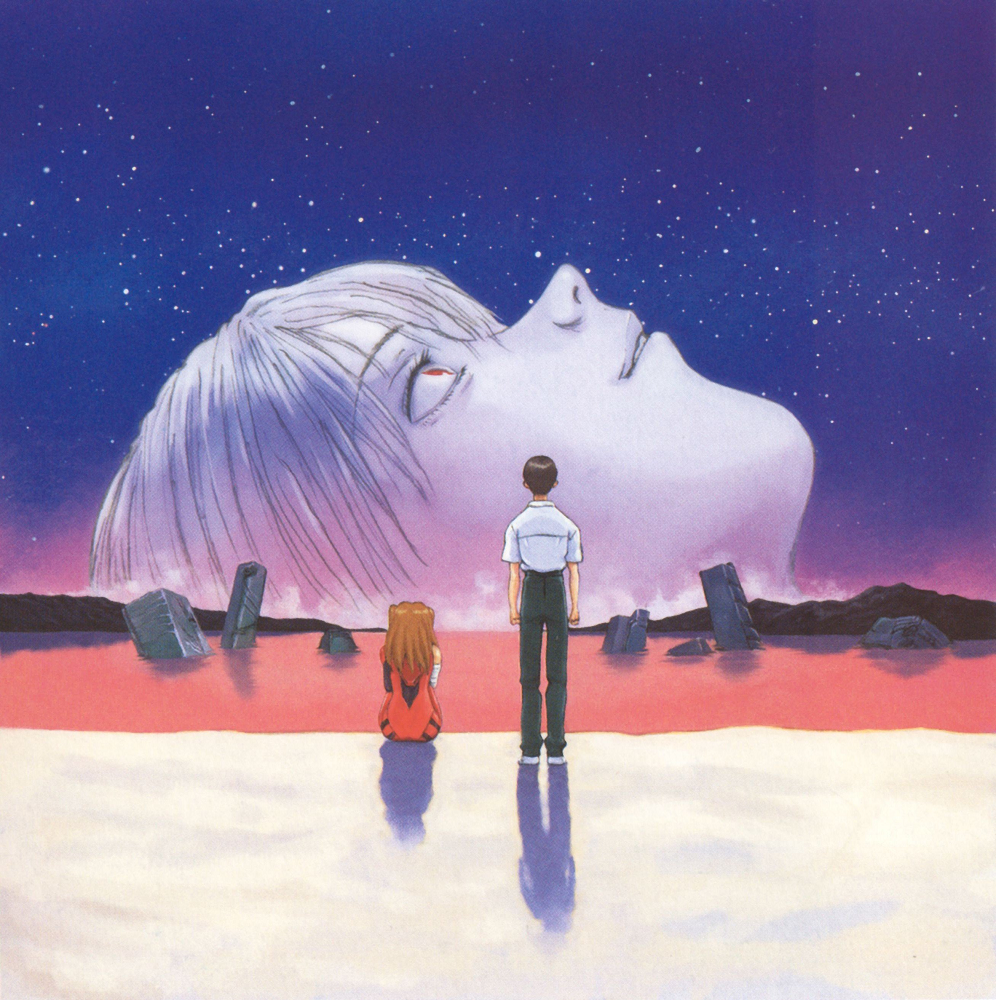
During my previous review of Neon Genesis Evangelion, I criticised it for a lot of things. The tanked production value as the series ran on and Studio Gainax ran out of funding/time. Anno’s often insane direction or story, which sometimes made sense and sometimes didn’t. Most of all though, I criticised it for it’s ending, which effectively left Evangelion as a slightly disappointing unfinished product. But what would happen if Gainax… didn’t run out of time? If Anno had another chance after the original divisive ending? What if they just made two, completely new 40 minute episodes to replace it? Well ladies and gentleman, that’s how you get End of Evangelion. Is this finale to the fabled series a roar, to replace its previous whimper? Does it make any more sense than the TV finale? Will Shinji get in the damn robot? Let’s dive in and find out.
And one last thing! There will be spoilers so we can talk about the work in its entirety, both the TV series and End of Evangelion, no vagueness here. You have been warned.
(Disclaimer: This review contains spoilers for Neon Genesis Evangelion and End of Evangelion. I am also working to make 50 the new "average". 70 is not an average score people. 70 is above average. You can also find individual episode write ups and comment on this review on my Star Crossed blog. Carry on.)

Art/Animation Once again, we have to begin with the Art and Animation. The only question is, where to start? Do I begin with how End of Evangelion has successfully transfered to the wide screen, leaving behind the modern black bars? How about the crisp and beautiful nature of its cels? No, the best place I think to start is simply “Holy crap”. As a movie, it really shouldn’t come as a surprise that End of Evangelion is well animated. The original Evangelion’s problem, from what I could research, was never budget but rather time. So with a full year and a no doubt full budget, production was never going to be an issue here. Meanwhile Anno’s often strange direction, which we will get to later, allowed the series to focus on its high impact scenes. You don’t really have to animate minutes of live action footage after all.
For proof we need look no further than Asuka’s fight against Seele’s Eva Units. This was the only clip I was aware of prior to watching Neon Genesis Evangelion, and it was just as great as I remember. Without even getting into the brutality of the fight or the organic movements of the Evas, I want to talk weight. Because the weight is what really sells this fight for me. From the slow momentum of Yoh Yoshinari and Nobutoshi Ogura to the incredible work on the environment of Mitsuo Iso. End of Evangelion really sells you on the scale of the fight through the movements of the combatants. Had they moved quickly and sharply like in a lot of modern action, it would just feel like regular people. But with the added weight of it all, these animators manage to convey the terrifying size of the conflict.
Meanwhile even outside of the fight scenes, when End of Evangelion is tripping balls, it still looks good. For instance we have the utter insanity of Akiko Asaki and Nobutoshi Ogura during Instrumentality. The animation is slow, yet incredibly detailed, really selling the horrifying nature of what exactly we are watching. There is also the fantastic character work of Mamoru Kurosawa during the same general time frame. Doing a beautiful job of depicting Shinji’s deteriorating mental state. All of it only getting better once you add in the sound work of Hideyuki Tanaka, though we will talk more on that later. All of this is to say, with specific examples, that End of Evangelion looks fantastic. You can argue the content or meaning of what is being depicted all you want, and we will later. But as far as the technical side goes, I loved it.
The same goes for the general art style of End of Evangelion as well. It still has that 90’s aesthetic to it that Neon Genesis Evangelion did. The texture of cel animation, the hand made backgrounds and all that. But now we get it in glorious wide resolution along with the painstaking detail in every frame only a movie can provide. There are definitely some weird bits in there of course, which we will talk about more in the next section. And these mostly appear in the finale of the movie, things like the real life footage, the theater, etc. They were a bit of a let down after the animation spectacle up to that point to be honest. While they filled space and maybe got the message across, they simply weren’t engaging or up to snuff, nor really fit in. All things considered though, End of Evangelion looked great.

Direction Next up we have the Direction, which is just as polarizing as the original Neon Genesis Evangelion. It’s not that its bad per-se, truly there are a number of standout scenes and terrifying imagery. A primary example of this is Instrumentality, and giant Rei that comes out of the earth. Everything about her, from the eyes to her movements, are haunting. As is the decision to show her rotting and falling apart, in scale, onto the rest of the planet. It’s weird, yes, but also terrifyingly beautiful. I think that End of Evangelion did a much better job of depicting the mental side of Instrumentality as well. Giving us a much less… fragmented look into Shinji’s mind, with some once again stellar directing. Selling the unsettling and manufactured nature of Shinji’s little world. Suffice to say, when End of Evangelion wants to, it’s amazing. Weird as hell, but amazing.
Sadly, there are some things I disagree with. And not in that I think they are bad scenes, I don’t think there is a bad scene in the entire movie. More just in that I thought they were unnecessary and they felt almost like Anno giving the audience the middle finger. The biggest example of this I want to bring up is between Gendo and Rei, as Gendo plans to begin instrumentality. I understand there is a whole thing about his wife Yui, and his own plans, etc. But I could really do without him straight up reaching into breasts, traveling down and grabbing her where the sun don’t shine. Another similar scene was Shinji masturbating over an unconscious Asuka. Did the scene convey what it needed? Yes. Did Anno need to show Shinji’s desire or Gendo’s creepiness in this manner? Not really. And I think Anno knew that.
Lastly I want to talk about the real life segment at the end of the movie. This is something I am very split on, because on one hand, its kinda clever. Here we are with a world ending, god-level event as humanity merges into one. Showing clips of the real world in an alternate-universe/meta sort of way. And it was no doubt easier to make some of those shots than to animate some of the extended sequences we have seen until now. At the same time though, I don’t think they do much for the movie. On a sort of meta level, yeah, you can look back and appreciate them a little. But they don’t add anything to the story or the sequence for me. It would all function just as well were those removed, and ultimately feels pointless and unneeded.
All in all though, I think Anno did a pretty good job with End of Evangelion. I have a lot to say about the intent behind the movie of course, which we will get to later. I am not entirely convinced Anno even wanted to make this movie in the first place, and didn’t resent the fans for their reaction to the TV ending. Ultimately however I believe pretty firmly in Death of the Author, and don’t think that their original intent should alter how I view a work much. And in that way, I enjoyed End of Evangelion a lot, and its direction was no small part to that. Truly some of these scenes were beautiful, haunting and memorable. And for all the shit I gave Anno in the original Neon Genesis Evangelion review, it’s only right I praise him when he deserves it to.

Setting/Story Next up we have the story, and if I am being entirely honest, it still didn’t make much sense. Right off the bat I can say I enjoyed it far more than Neon Genesis Evangelion’s original ending. End of Evangelion actually managed to wrap up a majority of the plot threads. If the TV ending was everything inside Shinji’s head, this is everything outside of it during Third Instrumentality. That said, it doesn’t really feel like an ending they wanted to tell. As if it was made in response to outcry over the original. So while I think it has more value as a piece of entertainment, it makes it difficult to draw conclusions on its greater thematic elements. That said, this is mostly going to be my interpretation, and I can tell you right now: Even if I didn’t understand it all, it was a hell of a ride.
Starting off, End of Evangelion opens on some weird stuff before jumping right into the high octane Seele invasion. For action nerds like me, this was a great time. Yes, we never really learn much about Seele, the Dead Sea Scrolls or their plan. All of that is really up in the air, but as far as actually enjoying the movie goes they don’t impact much. Meanwhile Asuka’s whole segment was just fantastic. Everything from the animation to her growth and place in pushing Shinji forward to the brutality of the fight was great. It was exactly the kind of spectacle set piece I was hoping to see from a Mecha show finale. I covered it earlier, but End of Evangelion really sold the scale of the conflict here well. Just absolutely wrecking the countryside and fitting in well with the “fate of humanity” nature that is this finale.
Moving on we come to Instrumentality, and this is where End of Evangelion starts to go off the rails. Not in a bad way necessarily, it still made for a good time, but I begin to question Anno’s intent here. For this is when I start to wonder if Anno even wanted to or had a plan for this movie. Take for instance Gendo who seemed to get the short end of the stick here. All these grand plans and his desire to be reunited with Yui, yet when it comes time for his big moment he… doesn’t even have any lines. He talks, but its silent, as if it either doesn’t matter or Anno didn’t know what he wanted to do here. Meanwhile we have overt religious imagery such as stigmata and crucifixion, etc. It all makes for a wild ride, but is it really relevant to the story?
This isn’t to say none of it worked as intended of course. The flood of Rei’s and other characters pulling people into Instrumentality was great. I enjoyed how each of them were approached by characters they cared for. Fuyutsuki by Yui, Ibuki by Ritsuko, Makoto by Misato, etc. It really pushed the sort of dark purpose behind Instrumentality and the way it forced people together. At the same time though, everyone turning into Tang was kinda weird and we saw the return of Crayon Shinji. It really feels makes the TV finale feel like appendices to this greater finale. As if you could watch that finale in the middle of End of Evangelion, slotting right in near the end of this movie. Anno already shows us glimpses of that, with another train scene or the scene in the park. As if he couldn’t resist putting his original in there somewhere.
Lastly of course we have the beach. I was really split on this ending scene when I first watched it. It felt a bit half assed, as if it didn’t want to conclude anything just like the TV. But the more I thought about it while writing this review, the less annoyed I got. I still wish it could be clearer, have a definitive point to it, but it works. This idea that Shinji is trying to prove he isn’t still in Instrumentality by choking Asuka like he did in the apartment. That this is real, because she responds and rejects him rejecting her. Simultaneous proof both have decided to return to the real world instead of staying in their “fake” worlds of Instrumentality. At the very least its a more definitive ending than everyone clapping around Shinji on a blue rock. So there is that.
End of Evangelion’s place in Neon Genesis Evangelion’s story is… complicated. Does it replace the TV finale, does it surround it? To be honest, I don’t particularly care, because the way I look at it is just a re-contextualization of the same events. One from inside Shinji’s head, the other from everyone else’s perspective. But the ending did make me wonder one thing: Did Anno want to make it? Because as a friend of mine said, it felt like he wanted to mess with every character. Basically taking the things everyone loved and just destroying them Whether it be Shinji masturbating, choking out Asuka, or kissing Misato. If you look you can find something weird for every plot point or character. All the way down to Asuka, Shinji and Giant Rei sitting on a beach. Does it make sense? No. But was it a good time? Fuck yeah.

Characters Speaking of the characters, incase you hadn’t guessed, I am conflicted here. In the original Neon Genesis Evangelion, I loved them, they were my favorite part. They were the only things to come out of the TV finale unscathed. Yet here in End of Evangelion, sometimes it feels like Anno is building off what we had before while other times exaggerating their worst parts. So to avoid too much overlap and to keep from repeating myself, this section is going to focus primarily on how the characters differ between the two endings. Primarily focusing on the same three, Shinji, Asuka and Misato, from the original review. If you want to see my thoughts on them as a whole, you can find it in my original Neon Genesis Evangelion review.
Now first up we have my boy Shinji! I did not expect, going into End of Evangelion, for Anno to find a way to make me hate Shinji. His growth throughout the original, his fear of getting hurt and not opening up to people, was fantastic. But I will never understand what made him want to cold open on Shinji getting off over the body of an unconscious Asuka. This simultaneously degrades both of their characters and sets the tone for the rest of the movie. The sad thing is, for all I hate it, it still managed to get across Shinji’s sexual desire. And that is basically my issue with Shinji in a nutshell for this film. Everything End of Evangelion does with him works, but it works in the worst possible way. Degrading and insulting his character the whole way through, dragging others down with him.
We need only look at what was my favorite character in the original series, Misato. Now to be fair to End of Evangelion, she gets out of the movie largely unscathed. Still maintaining her badass military woman front, which is hot, while continuing to push Shinji forward. All the while keep a lid on her own barely contained grief over Kaji and the situation as a whole. Now in the original, I could deal with her Electra complex, it was an established part of her character and relationship with Kaji. But I always prefered to view her relationship with Shinji from a more maternal angle. So having Anno just undercut that and continue with this consistent theme of sexual desire throughout the movie felt… unnecessary and voyeuristic. Once again it got across their feelings for each other, but it did so in the most uncomfortable ways possible.
About the only character to come out of this movie better than she went in was Asuka. In the original, Asuka was largely sidelined for the finale. Only really being relevant in Shinji’s dreamscape. So to see her get some closure with her mother, to self-actualize back into this badass. All the while finally acknowledging that yes, she needs Shinji’s help, yes he should be out there fighting with her. Yes, he is worthy to stand beside her. We see this through her snipes at Shinji during the big fight. So when he fails this call to action, resulting in Asuka’s seeming death, it hits hard. This was a character who grew, fell, and finally in End of Evangelion stood back up again greater than before. Suffice to say, End of Evangelion successfully made Asuka my 2nd favorite character of the series, supplanting Shinji after his… sticky opening.
So all in all, End of Evangelion is probably a net positive for the series characters. Misato continues to do what she does best, Shinji takes a bit of a dip and Asuka self actualizes amazingly. Meanwhile Rei becomes an almost literal god, Gendo admits his own self-hatred paralleling him to Shinji and Ritsuko… Well she just gets shot in the back, so we can leave her alone. A lot of this is no doubt going to come down to personal interpretation though. Whether or not you connect with Shinji’s depression or Asuka’s issue’s, etc. For all that Anno might not have wanted to make it, and for all its pseudo-philosophy, End of Evangelion has enough of a personal touch in its characters that it makes sense people would get connected to them. I sure did.

OST/Sound Design Next up we have End of Evangelion’s sound design and OST. For the sound design, I won’t speak to much on it since its largely the same as the original Neon Genesis Evangelion. And just like the original, it’s pretty damn good. I’m no sound engineer, but everything from VA work to the crumbling buildings to the creepy nature of Instrumentality sounds good. A lot of it is pretty basic of course, the background sounds of bullets or running down hallways, or water. But the iconic sounds of Evangelion are all back in force as well. The screams and movements of the Eva Units to the screech of the missles. There wasn’t anything that really took me out of the moment. At least, nothing from the sound design perspective that is. What this means now though is we can focus entirely on talking about End of Evangelion’s OST.
Just like the original, End of Evangelion’s soundtrack, composed by Shiro Sagisu, has some fantastic tracks. With the elephant in the room of course being “Komm, süsser Tod“, the staple of the movie. Now I hesitate to call it “the piece” of the film, but with its lyrics, unique sound and placement at the climax that’s really what it is. And it’s great. Arianne Schreiber did a fantastic job with the vocals for the track. It’s simultaneously upbeat and cheery with the musical style while being depressing and poignant once you listen to the lyrics. And somehow, despite the insanity of Instrumentality occuring on screen, it fits perfectly. Really nailing Shinji’s depression and desire to end it all, doing more for this finale than anything else occuring at the time. If I had to pick one thing to take from End of Evangelion, it would be this song.
Beyond that, End of Evangelion didn’t really have many memorable tracks. At least not as many as the original. Of course that doesn’t mean they are bad. “Substitute Invasion” and “The Passage Of Emptiness” are still haunting, meanwhile “Escape to the Beginning” is almost religious in its presentation. However a large majority of End of Evangelion’s OST consist of orchestral pieces with little vocal work, even once again including pieces from classical musicians like Bach. And while these fit the movie and the scenes, they don’t really make for anything memorable. At least not on the level of “Komm, süsser Tod“, “Jikai Yokoku“, “Cruel Angel’s Thesis“. This isn’t to say that isn’t possible the original did it with “Thanatos“. I just don’t think that was what End of Evangelion was going for in this case. Resulting in an OST that, while it can’t stand solo, augments the original work well.

TV Comparison/Personal Ramblings Finally we get to what is normally one of the hardest sections to write, those being themes and symbolism. However in this respect End of Evangelion doesn’t really differ from Neon Genesis Evangelion that much. It’s still primarily about depression, relationships and human connection. It’s still primarily driven by its characters and based off of its director, Hideaki Anno’s, experience with said topics. So exploring those again here would sort of be a waste of time when you can just go read the original review for that. Instead I want to use this section to both go over why End of Evangelion was made and also for a bit of personal ramblings on the movie. How it compares to the original TV ending, whether or not it was necessary and how it closes out the series as a whole, excluding the Rebuilds.
Now I have mentioned or sprinkled throughout this review questions on if Anno even wanted this movie made. And while I believe in Death of the Author and it has no effect on how I view the movie, it’s an interesting question. Based on what I watched, and what I managed to find with research, it appears the answer is both yes and no. Yes in the sense that often throughout the movie it appears like Anno resents the divide over the TV finale. Maybe this is just conjecture based on my own dislike of that finale, but it doesn’t treat many characters well. Yet at the same time every source I have found says that End of Evangelion is closer to the intended ending, had they the time. Meanwhile the letters flashed on screen at the finale are ones of encouragement rather than threats. It paints a confusing picture.
Whatever Anno’s intent though, however it connects back to his personal life experiences, I personally don’t think they matter much. A form of bitter revenge against his vocal fans or the intended ending. The fact is, I enjoyed this finale much more than the original TV ending. Both give us closure on the characters, and while you can argue the TV ending does so better, End of Evangelion also gives us closure on everything else. Seele, Nerv, Misato, Asuka, the Eva Units, Instrumentality, etc. Everything you got from the TV ending is still there, it still takes place in the film, though in a condensed form. Now it just has the context of the greater world and narrative culminating around it at the same time. For me, that’s exactly what I wanted. The sheer insanity of it or authorial intent aside, End of Evangelion is a good piece of entertainment.

Conclusion So, all in all, how was End of Evangelion? Did it disappoint like the original or raise it up? Well at this point that should be rather obvious, it was good. The narrative, themes and all that weighty stuff aside, End of Evangelion was first and foremost just a good piece of entertainment. Those not looking for some weighty philosophical think-piece will find something to enjoy here. Whether it be the giant robot fights, the trippy visuals or something in between, it’s there. Meanwhile for fans of the original or those invested in the narrative like I was, it all gets wrapped up. There are still questions of course, but I believe the pieces are there for someone to put together their own ending. To connect the dots their own way. And I think a movie that can do both simultaneously, for all its faults, is pretty damn good.

MiNiSoTaN
100/100This Is The Greatest Anime Movie Of All TimeContinue on AniListMiNiSoTaN's Neon Genesis Evangelion: The End of Evangelion Review 
__Introduction:__ Hello. My name is Neill or "MiNi." This will be my in depth review of Hideaki Anno's brilliant Neon Genesis Evangelion: The End of Evangelion. With all my reviews I will score the anime discussed based upon 5 categories that include: Story, Characters, Art, Music, and Personal Enjoyment. Each category will be given a score between 0 and 10. The ending score will be what I determine the show deserves overall. Keep in mind I will be talking about spoilers that occurred during the anime along with possible spoilers of the manga. Now, without further ado, let's get into this.__STORY (10/10):__ 
__CHARACTERS (10/10):__ 
__ART (10/10)__ 
__MUSIC (10/10)__ 
__PERSONAL ENJOYMENT (10/10)__ 
__Final Thoughts and Score:__ Thank you all for reading, make sure to follow my page for more anime reviews! __Official Scores__ Story: (10/10) Characters: (10/10) Art: (10/10) Music: (10/10) Personal Enjoyment: (10/10) # __FINAL SCORE: (10/10) MASTERPIECE __ @MiNiSoTaNDid you really read the review, or are you just looking at the score?
SIMILAR ANIMES YOU MAY LIKE
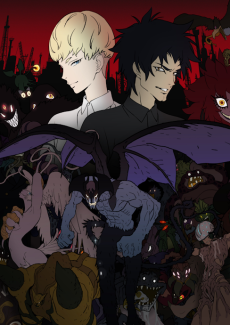 ONA ActionDEVILMAN crybaby
ONA ActionDEVILMAN crybaby OVA DramaTenshi no Tamago
OVA DramaTenshi no Tamago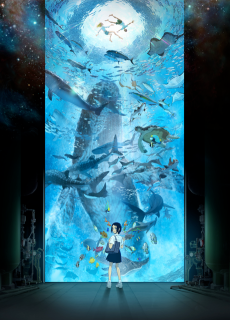 MOVIE DramaKaijuu no Kodomo
MOVIE DramaKaijuu no Kodomo
SCORE
- (4.25/5)
TRAILER
MORE INFO
Ended inJuly 19, 1997
Main Studio Gainax
Trending Level 3
Favorited by 14,971 Users




